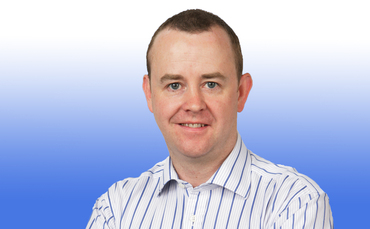This is precisely the vibe I get from this month's fund. The TB Amati Strategic Metals fund is an active, high-conviction portfolio whose investment process is driven both by bottom-up analysis and the prevailing macroeconomic environment.
It is a portfolio diversifier that taps into unique investment opportunities, including the transition to a lower-carbon world.
Evenlode Global Equity among seven funds to gain Elite Ratings from FundCalibre
There is a strong argument to suggest this is a winning hand long term, particularly when you consider more than 190 countries agreed to a legally binding international treaty to reduce their greenhouse gas emissions to net zero by around 2050.
This will not happen without a significant increase in wind and solar power and, by extension, a huge increase in the metals needed to produce them.
But the market is being dominated by the macroeconomic outlook at the moment - and that is preventing people from allocating to commodities.
"The market is in a holding pattern," says co-manager Mark Smith, who says the overriding concern is about the potential change in direction of US interest rates, and whether we get a soft landing or a full recessionary downturn.
"The other concern affecting the broader industrial-based metals sector - is a slowdown and/or deflation in China, with the market waiting to see if the Central Bank of China undertakes a broad stimulus," he adds.
Experience with commodities
The fund launched in March 2021, but Smith and co-manager Georges Lequime are industry veterans in this space, including as gold miners/explorers.
The pair tend to target medium- to smaller-sized mining companies that demonstrable capabilities to meaningfully grow the value of their business through exploration success and the de-risking of the project build.
This naturally screens out large, mature companies, reliant on higher commodity prices to enhance the value of their businesses.
The managers use commodity-based broker research, sector-specific conferences and company presentations, as well as internal supply-demand models to help formulate sector allocation within the portfolio.
They aim to identify undervalued public companies in the natural resources sector before they are widely covered by the broking community.
FundCalibre Elite Radar: Schroder Asian Alpha Plus
A good example, which highlights the process and the current challenges, is Chesser Resources, a late-stage exploration company based in Senegal. The management duo had an existing relationship with the chairman and had been through a number of takeovers with him in the past.
Despite getting exposure at an incredibly low valuation, and seeing the company purchased at more than a 50% premium by Fortuna Silver earlier this year, the pair felt it was a missed opportunity for an even greater return.
"We felt that (purchase) was very cheap and this has been our biggest frustration," says Smith, who says there are six or seven examples of companies they have held being taken out too early.
"When you do not have the depth in the market (to support share prices and development assets) management gets frustrated because they cannot raise equity to develop the asset and end up treading water. They then capitulate, and the board decides to sell for an offer which might be a premium, but not true value," Smith adds.
Nuclear an important allocation
The fund currently has its largest exposure in lithium (29%) a key element in electric vehicles, with gold (24%) the second-largest allocation.
However, the two metals they are most bullish on at present are silver and uranium. The former is a 20% holding, where the managers say demand is rising for the likes of solar panels, while supply is flattening.
Lequime says uranium is the classic example of under investment in capital: "The US gets 20% of its power from uranium - half of which comes from Russia. Democrats and Republicans are pushing through the bill to have their own facilities to do this - but they are not ready in time. They hope to have enrichment capacity to the right level by 2029.
"You cannot rely on just wind and solar; nuclear is part of the equation - that is what is pushing the price up," he adds.
Six funds gain 'Elite' FundCalibre rating
The team expects exposure in uranium to rise to 12-15% of the portfolio.
Smith says markets understands the decarbonisation theme - and the need to replace oil with these speciality metals - but says the demand is so great there is an element of the sector being ignored because there is no way mining can respond to the demand.
"All these pledges by governments are not realistic - the can will get kicked down the road. This attitude is why we are where we are in the sector. But the fact mines are not being brought online is just amplifying the ultimate result - that is a bigger squeeze, an overcorrection and a bigger cycle coming through," Smith notes.
Lequime says the market is purely focused on the short-term - this means technology, rather than energy or mining is the priority.
"Small hiccups can result in a deep discount - but we accept this seasonality in our part of the market. My experience tells me you want to be fully invested when it turns, because companies can rise 20-30% in a day."
This fund should be used as an example of the importance of patience. It may be down 10% since launch, but the long-term argument is so strong as these metals have strategic importance to the global economy and future macroeconomic trends. I would see it as an ideal diversifier in any long-term investment portfolio.
Darius McDermott, managing director at FundCalibre


